Related Research Articles

"Mountains" is a 1986 song by American musician Prince and The Revolution, from his eighth album, Parade (1986), and the soundtrack to the film Under the Cherry Moon. It was written by The Revolution members Wendy & Lisa together with Prince. The extended 12" single version of the song runs nearly ten minutes. It reached number 23 in the US but only 45 in the UK. The B-side was the instrumental "Alexa de Paris", one of the few tracks from this project featuring a guitar solo. Both songs appear in the film Under the Cherry Moon, with the video for "Mountains" playing as the credits roll. The version shown on MTV to promote the single was in color as opposed to the film's black-and-white version.
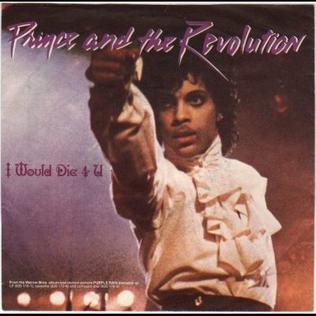
"I Would Die 4 U" is a song by Prince and the Revolution, the fourth single in the US from their 1984 album, Purple Rain. The up-tempo dance song was a top 10 hit—the final one from the album—in the US, reaching number 8 on the Billboard Hot 100.
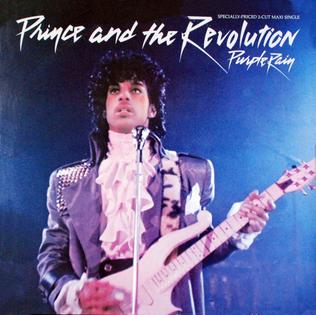
"Purple Rain" is a song by American musician Prince and his backing band the Revolution. It is the title track from the 1984 album of the same name, which in turn is the soundtrack album for the 1984 film of the same name starring Prince, and was released as the third single from the album. The song is a power ballad that combines rock, R&B, gospel, and orchestral music.

"Let's Go Crazy" is a 1984 song by Prince and The Revolution, from the album Purple Rain. It is the opening track on both the album and the film Purple Rain. "Let's Go Crazy" was one of Prince's most popular songs, and was a staple for concert performances, often segueing into other hits. When released as a single, the song became Prince's second number-one hit on the Billboard Hot 100, and also topped the two component charts, the Hot R&B/Hip-Hop Songs and Hot Dance Club Play charts, as well as becoming a UK Top 10 hit. The B-side was the lyrically controversial "Erotic City". In the UK, the song was released as a double A-side with "Take Me with U".
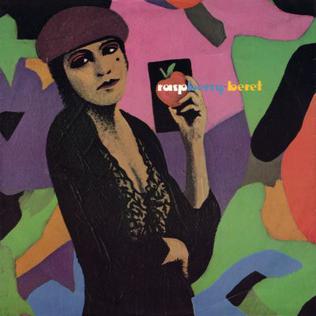
"Raspberry Beret" is a song written by American musician Prince and the lead single from Prince & the Revolution's 1985 album Around the World in a Day.

"Take Me with U" is a song by Prince and the Revolution, and the final US single released from their album, Purple Rain (1984).

"Paisley Park" is a 1985 song by Prince and The Revolution. It was the first single released in some international markets from their 1985 album, Around the World in a Day and so is also the album's last single internationally. "Paisley Park" was recorded 3 months after the Purple Rain album was released. Violin on the song was played by Novi Novog, and Wendy & Lisa provide backing vocals. The rest of the song was performed by Prince. The song reached the Top 40 in all of the countries it was released in. It peaked within the Top 20 in both Ireland and the UK.

"Pop Life" is a song by Prince and the Revolution. It was the second US single from their 1985 album, Around the World in a Day, reaching number 7 in the US charts, becoming Prince's eighth top-ten hit in a two-year span.
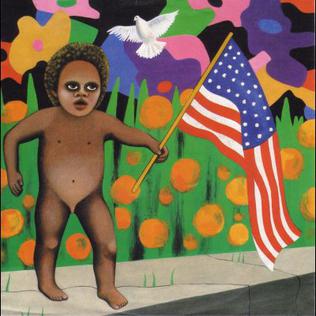
"America" is a song by Prince and The Revolution. It was the final US single from the group's 1985 album, Around the World in a Day.
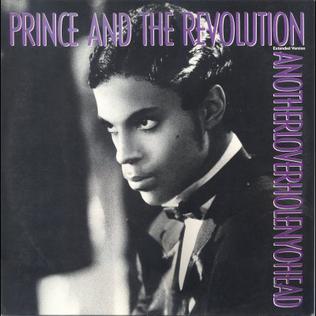
"Anotherloverholenyohead" is a 1986 song by Prince and The Revolution, from the album Parade, the soundtrack to the film Under the Cherry Moon. The song is essentially a solo performance by Prince, with backing vocals from Susannah Melvoin, and the horn section of Eric Leeds and Atlanta Bliss on the extended version. The song also features a string arrangement by Clare Fischer. The song is set in a minor key, and written around a piano chord sequence, although the arrangement emphasizes an upfront guitar synth and a drum machine. The lyrics are about a man trying to reclaim a lover who is intent on leaving him for another. The song's title is a combination of the main idea of the song, and the line "U need another lover like u need a hole in yo head" from the chorus. The single received a 12" extended release with intricate piano work,a horn overdub and some dance commands from Prince.
"Darling Nikki" is a song produced, arranged, composed, and performed by American musician Prince, originally released on his sixth studio album Purple Rain (1984). Though the song was not released as a single, it gained wide notoriety after Tipper Gore pointed out its sexual lyrics—in particular an explicit reference to female masturbation—and was responsible for the creation of the infamous Parental Advisory sticker. The song tells the story of a "sex fiend" named Nikki who seduces the singer.
"17 Days " is a song by Prince and the Revolution, and was released as the B-side of Prince's single "When Doves Cry" from Purple Rain. Intended for the side project Apollonia 6, it was originally recorded with the intention of making it a solo track for Apollonia 6 member Brenda Bennett. Ultimately, Prince would record it himself and release it as a B-side. Despite this, it remained a fan favorite, and it would often appear in Prince's live setlist until the year of his death.
"Computer Blue" is a song by Prince and The Revolution. Released on June 25, 1984, it is the fourth track on Prince's sixth album, Purple Rain, which also served as the soundtrack to the film of the same name. In the film, the song represents Prince's character's angst at the budding relationship between the characters played by Morris Day and Apollonia, the latter of whom he desires, and he performs it in front of the two during The Revolution's set at a nightclub with the aim of upsetting them. The song was composed by Prince with credit to his father, John L. Nelson, for the guitar solo based on a piano instrumental written by Nelson and Prince. He titled the instrumental piece "Father's Song" and recorded it on piano for the film, though onscreen it was portrayed as being played by Prince's character's father, played by Clarence Williams III. On the box-set Purple Rain Deluxe (2017), a different and longer recording of "Father's Song" was included.
"Baby I'm a Star" is a song written and recorded by American musician Prince from his album Purple Rain. It is also the B-side on the "Take Me with U" single.

The Glamorous Life is the first album by the singer/drummer/percussionist Sheila E., released on June 4, 1984. The title track, "The Glamorous Life", entered the US top ten, and her second single, "The Belle of St. Mark" charted in the US, UK, Ireland, Netherlands and New Zealand.
"The Beautiful Ones" is the third track on Prince and the Revolution's soundtrack album Purple Rain. It was one of three songs produced, arranged, composed, and performed by Prince, the other two being "When Doves Cry" and "Darling Nikki". The song was recorded at Sunset Sound in Los Angeles by Peggy Mac and David Leonard on September 20, 1983. The song replaced "Electric Intercourse" on the Purple Rain album.
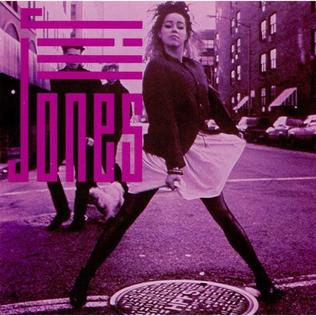
Jill Jones is the self-titled debut solo album from the artist of the same name; Jill Jones. The album was released in 1987 on Paisley Park / Warner Bros. Records. It was produced by Jones and Prince.
"Moonbeam Levels" is a song by American musician Prince from the album 4Ever. It was the first Prince track to be officially released posthumously, and was an outtake from the 1999 sessions, with minor editing done just prior to the Purple Rain sessions.

Camille is the upcoming second posthumous studio album by American musician Prince. The album was originally recorded in 1986 under the pseudonym Camille, a feminine alter ego portrayed by Prince via pitch-shifting his vocals up to an androgynous register. Prince planned to release the album without any acknowledgement of his identity. The project was initially scrapped several weeks before its planned release, with rare early LP pressings eventually surfacing for auction in 2016; several tracks recorded for Camille were instead included on various other projects, most prominently Prince's 1987 double LP Sign o' the Times.
"The Ballad of Dorothy Parker" is a song written and performed by Prince. It is the fourth track on his 1987 double album Sign o' the Times, and features a reference to one of Prince's favorite artists, Joni Mitchell. The track was planned to be the album's fifth and final single, but this never came to fruition and remains unreleased in that format.
References
- 1 2 "Around The World In A Day". songfacts.com. Retrieved 2023-05-11.
- 1 2 Tudahl, Duane (2018). Prince and the Purple Rain Era Studio Sessions: 1983 and 1984 (Expanded Edition). Rowman & Littlefield. ISBN 9781538116432.
- ↑ "Susan Rogers". redbullmusicacademy.com. Retrieved 2023-05-11.
- ↑ Clerc, Benoît (October 2022). Prince: All the Songs. Octopus. ISBN 9781784728816.
- ↑ "Around The World In A Day". guitarcloud.org. Retrieved 2023-05-11.
- ↑ "Yamaha DX7". guitarcloud.org. Retrieved 2023-05-11.
- ↑ "Around The World In A Day - Prince Vault". princevault.com. Retrieved 2023-05-11.